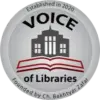Waikato Reading Lists
Waikato Reading Lists is a service provided by the University of Waikato in New Zealand that allows students and faculty to access reading lists for their courses online. Reading lists are compiled by faculty members and include a selection of required and recommended readings for a course.
Through the Waikato Reading Lists service, students can access a list of all the courses for which they are enrolled, view the reading list for each course, and access electronic versions of readings where available. Faculty members can also use the service to create, edit, and publish reading lists for their courses.
The Waikato Reading Lists service is intended to help students and faculty access and manage course materials more efficiently, and to promote the use of electronic resources where possible.
Waikato Reading Lists is a service provided by the University of Waikato in New Zealand to help students and faculty access and manage course materials, and it likely evolves over time to meet the changing needs of the university community.
Reading lists are a common feature of higher education, and they are typically compiled by faculty members to provide students with a list of required and recommended readings for a course. Reading lists can include a variety of types of materials, such as books, articles, and online resources. The specific types of materials included on a reading list will depend on the subject matter and goals of the course, as well as the preferences of the faculty member.
Overall, the purpose of reading lists is to help students access the materials they need to succeed in their coursework and to encourage them to engage with a range of resources that will support their learning.
Waikato Reading Lists Read More »
